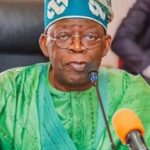Nigeria is a multi-ethnic nation, and this diversity has been the source of much tension and distrust throughout its history. To ensure peace among these different groups, Nigeria decided to implement a system of the rotational presidency between the North and South, which is known as “zoning” and which enabled each region to share in the power of governing. This meant that the President would be rotated among the two divides so that all could have their chance at leading the country
This concept of power-sharing was introduced in 1999 when the Fourth Republic began and has been the basis for all subsequent elections. However, there has been much debate recently over whether it is constitutional. Of course, there is no written agreement requiring Nigeria to practice zoning; however, it remains an effective way for us to maintain harmony within our borders. The principle of zoning and the rotational presidency is therefore essential if Nigeria wishes to continue maintaining peace among its ethnic groups and promote unity among its citizens.
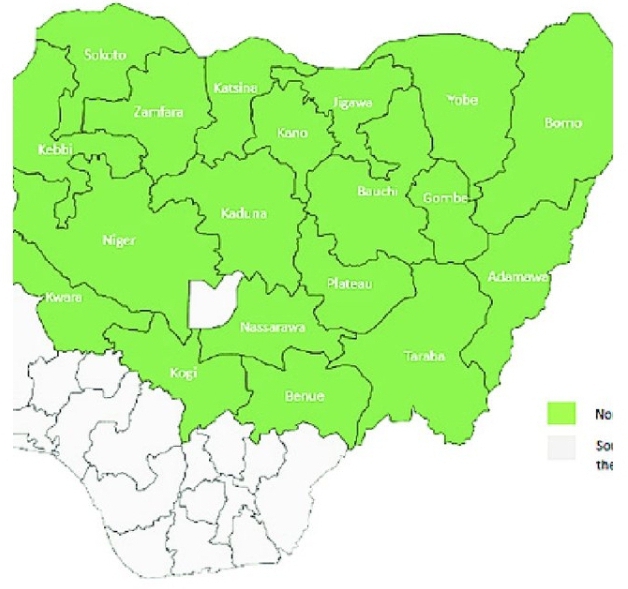
The Federation of Nigeria stands as an example to the world of what can happen when different cultures and backgrounds come together. This system has worked well over time and helped prevent any one group from monopolizing power while also allowing more equitable distribution of resources, as well as helping keep tensions between ethnic groups low, and contributing greatly towards political stability.
See Also: THE ONLY WAY TO ENSURE A NEW NIGERIA
However, this level of national loyalty does not occur by accident. The concept of zoning presidential offices is founded upon firm constitutional grounds. According to Section 9 (3) of the 1999 Constitution of the Federal Republic of Nigeria (as amended), “the composition of the Government of the Federation or any of its agencies shall be carried out in such manner as to reflect federal character.” This simply means that different ethnic groups must be represented in government positions so that no one group dominates another.
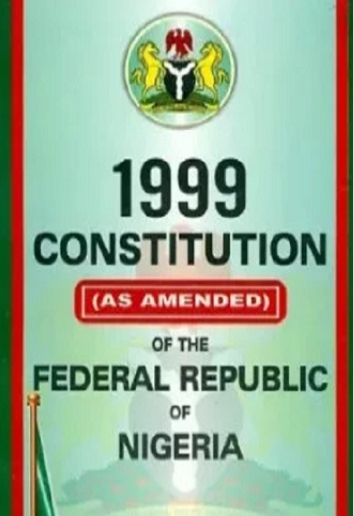
This system ensures fairness and encourages a peaceful coexistence between different groups while still allowing them to enjoy their customs and traditions without feeling marginalized. Without zoning laws in place, a division could easily arise between sections of society instead of cohesion within our nation’s borders. Therefore, it is vitally important that these zoning regulations are strictly followed so that everyone across regions has equal access to political office–something we strive to maintain to continue managing our diversity here in Nigeria.
The nation of Nigeria had long been held together by this principle of rotation of the presidency between the North and South. This meant that a northerner had to be succeeded in 2023 by a southerner. But recently, an unexpected happens: Alhaji Atiku Abubakar decided to violate this longstanding principle at the just concluded 2023 Nigerian Presidential election and defy the traditional rules of “zoning” which had long been a mainstay of Nigerian politics that ensures the two regions take turns occupying the number one position in the country.
This arrangement has worked quite well since 1999; however, now Alhaji. Abubakar had attempted to truncate this status quo by running outside the turn of his region. It’s an audacious attempt that raised alarm bells across various sectors of society: politicians, public servants, civil society leaders, academics—even some members of the international community felt disturbed.
Alhaji Atiku Abubakar is a well-known political figure in Nigeria. He has been in active politics and has played an important role in shaping Nigerian politics. His rise to political stardom began when he was elected governor of Adamawa State in 1999 and later promoted as Vice President under General Olusegun Obasanjo’s tenure. He was highly visible within the government during his time in office and quickly distinguished himself as a strong leader. He soon established himself as one of the most influential voices on the national stage.
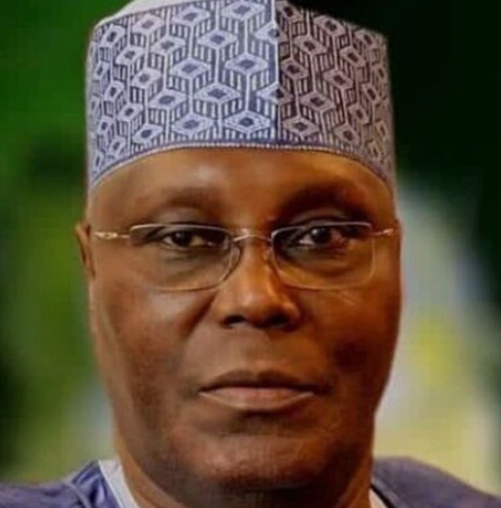
Atiku’s influence didn’t just stop at his party level; his commitment to improving the lives of individual Nigerians who had connections to him was evident throughout his political career- especially when it came to human capital development, regardless of the background or identity of beneficiaries. This earned him admiration wherever he goes because it speaks volumes about how much care he puts into every single life he touches.
Throughout his political career, Alhaji Atiku Abubakar was known for being open about democracy and remains committed to seeking a resolution to matters through dialogue rather than violence – something that truly sets him apart from other prominent politicians and earned him respect both domestically and internationally. Even today-people cannot reconcile the fact that that same Atiku-a former vice president was on the street leading a protest against INEC- a democratic institution performing its statutory duty.
See Also: POLITICS OF REDESIGNING NIGERIA CURRENCY
It is not hidden that Alhaji Atiku Abubakar had an age-long dream of becoming the President of his beloved country; and for years, he had worked tenaciously to amass wealth and influence for this resolve. He has also made several attempts and crossed many rivers to achieve his lifetime ambition. Sadly, age seems no longer to be on his side again, and this dispensation presents his last chance. Hence, he became too desperate to achieve his long-life ambition at all costs.
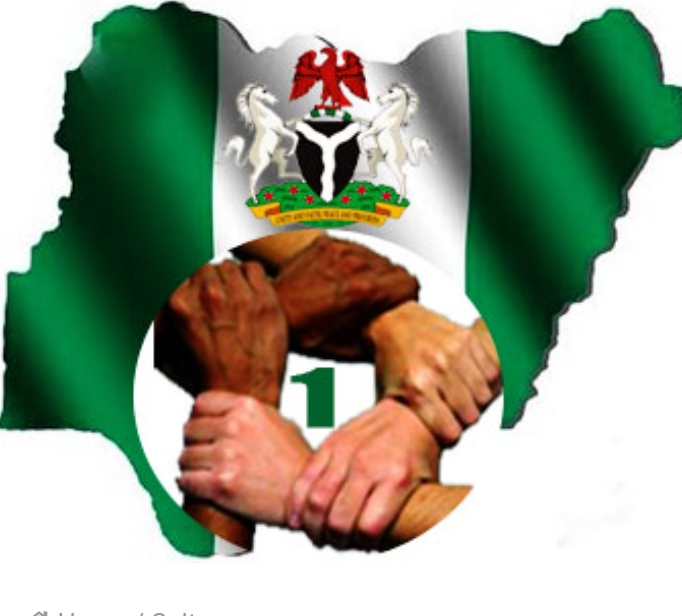
But there was one problem: the existing rules of zoning in Nigeria were so entrenched that they seemed unchangeable. It was a dream that seemed impossible, yet Alhaji Atiku Abubakar had the resolve to make his ambition come true. He wanted to become the president of Nigeria and he wouldn’t let anything stand in his way.
Atiku knew this rotational presidency will hold him back from accomplishing its full potential before retiring from politics; He decided it was time to challenge this convention and fight to alter it – something he’d never done before, but felt deeply eager to do now. His dream seemed to be vanishing as a result of age and the ordinance of zoning. He knew he needed to act fast if he wanted to secure himself a place on the ballot, so without hesitation; he set off without regard to the existing zoning arrangement in the country.
This could be his moment than ever: the incumbent president would not be running again, and the Southern zone will rule for another 8 uninterrupted years before the position returns to the North. Atiku knew he would have to be resolute if he wanted to succeed. He was also sure of one thing; if anyone can win for his party, then surely it must be him.
To fulfill his lofty goals, however, Alhaji Atiku Abubakar was forced to compromise some of his democratic values in favor of more politically expedient options. This desperate pursuit began to take its toll on his credibility among Nigerians who once saw him as a democratic leader they could trust but unfortunately, it seems like Alhaji Atiku Abubakar had determined to be president at all cost – even if it meant sacrificing some of his most cherished values along the way.
Banking upon the backing of the cohort of the Northern Elder Forum, remnants of Oligarchs with the mastery of holding power by perfidy, and longstanding political lieutenants across the country, Atiku declared his grand plan to rewrite the rule of zoning as we know it.
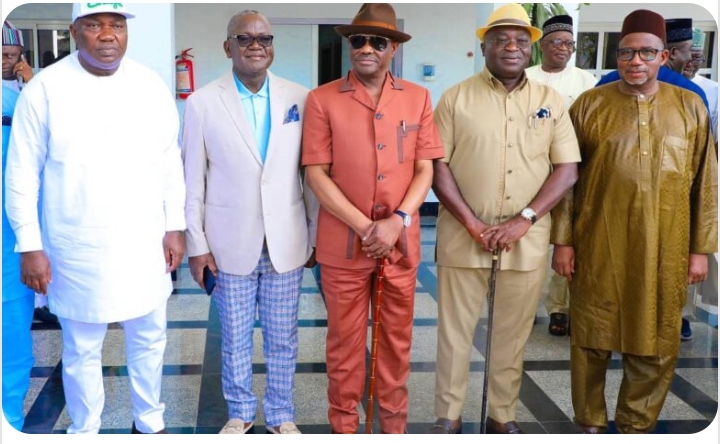
As soon as he announced his candidacy, people began questioning just what this meant. Opposition began to rise from within and beyond. This plan quickly caught fire among his party stalwarts who wants stability in their party. These were powerful politicians who questioned his actions and decisions; others accused him of being too extreme; still more argued that he would only serve to further divide the nation.
Whatever the reason, it soon became clear that Alhaji Atiku Abubakar had become increasingly detested among many Nigerians — not just by those who simply did not feel comfortable with his plan within the party, but also by those opposed to his political action. After all, here was someone challenging the longstanding practices within Nigerian society; did this mean the political norms will finally change?
The incumbent President Muhammadu Buhari is a Northerner, meaning that if Atiku succeeded in his attempt to run in 2023, then both he and Buhari would hail from the same region—a constitutional and political violation that could create huge rifts between different parts of Nigeria. And yet despite all this opposition, Alhaji Atiku remained determined to press on with his campaign for president — driven by a deep passion to achieve his lifetime ambition—even when facing intense criticism from powerful politicians and members of the society.
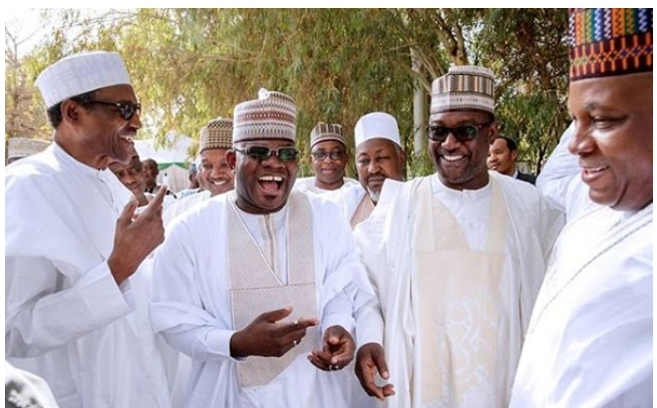
Atiku Abubakar has long harbored this ambition and wanted to make a last trial to fulfill his dream at any cost—even if it threatened the very existence of Nigeria as we know it. Therefore, despite all critics, Alhaji refused to give up on his mission and continued working hard towards achieving success against all odds – even after receiving rejections from many prominent members within his political circles who felt that they must not allow their beloved Nigeria to fall into chaos because one person desires personal gain more than national unity, and due to fear that it might jeopardized the victory of their party.
This is the practice that serves to promote national unity and foster peaceful coexistence among different ethnic groups within Nigeria. It has been helping the nation to diminish the feelings of marginalization and discrimination, which can lead to unrest if left unchecked. It, therefore, falls on all and sundry who care about their country’s future well-being to stand up against Atiku’s dangerous ambition before it takes hold. Only through the collective action of voting against the inordinate ambition of Mr. Atiku can we truly protect ourselves from such threats.
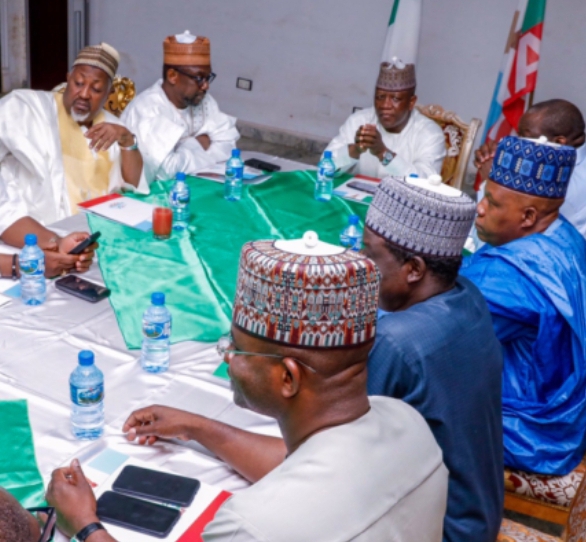
A coalition of political leaders from the South and North, especially the Northern Governors, came together to form a powerful alliance dedicated to fighting for what is fair and just—the turn of southern citizens to become President. The primacy of justice exalts a nation. Nigeria was founded on the principles of unity and fairness. It is a country that has grown to become much more than just a nation, but one where all its citizens are bound together as brothers and sisters under the banner of democracy. A fairer democracy is where everyone can have an equal chance at leadership. And so, it was after many nights spent discussing strategies with passion; through unity between all those who believed in justice over greed — Alhaji Atiku Abubakar’s inordinate ambition was defeated, and a Southerner finally emerge as the president.
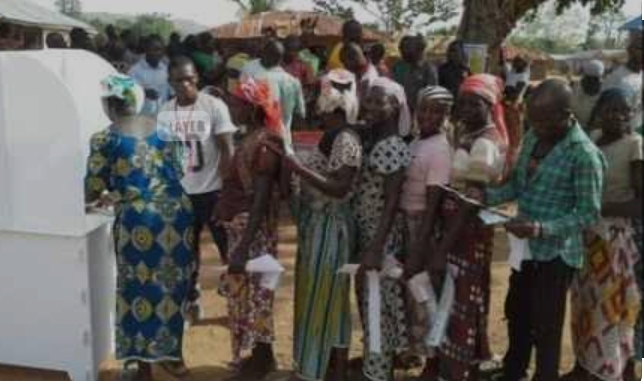
In any case, whether Alhaji Atiku Abubakar ultimately succeeds at becoming president is not the concern of this blog post. The concern, however, is his passionate drive toward rewriting traditional conventions surrounding the rotational presidency. He has certainly managed to stir up some apprehension regarding these issues throughout the entire nation. For this alone, we can say without a doubt that Mr. Abubakar’s attempt to truncate the rotational presidency does not serve the course of Honor, Justice, and equity.
See Also: Praying For A Better Nigeria – Turn Your Prayer Into Action!
One thing is clear, apart from the fact that his desperation has eroded his credibility that once endeared him to the people across the nation and made him worthy to pursue such an exalted goal, his action would have a huge impact on how Nigerian people would approach the politics of rotational presidency in the future. Without a doubt, Alhaji Atiku Abubakar will face the challenge of regaining the confidence of his admirers for his attempt to truncate longstanding practices of Zoning of the Presidential Office in Nigeria. History is stubborn, it will remember roles of each and everyone connected with perfidy whenever it is played out in the events of our common patrimony.
In conclusion, while there has been much controversy surrounding Alhaji Atiku Abubakar’s recent attempt at re-writing the gold-plated rules governing presidential offices in Nigeria, it is important to recognize that these rules are necessary for promoting national unity and fostering peaceful coexistence among different ethnic groups within Nigeria. It is only through understanding this importance that we can truly understand why these rules must remain intact if we are serious about achieving unity as a nation.
Idowu E. Faleye, a certified Data Analyst, Political Activist, and writer, is a graduate of Politics & Public Administration. He’s the Founder/Chief Data Officer at EphraimHill Data Blog –a Data Reporting Site that is niche in Politics & Society. He can be reached at +2348132100608. or ephraimhill01@gmail.com



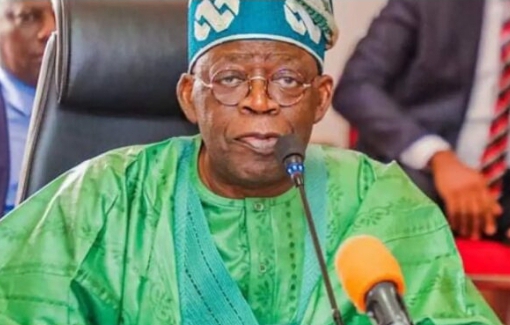








































![The Trend of Insecurity in Nigeria. [Part 2]](https://ephraimhilldc.com/wp-content/uploads/2024/09/Computer-Monitoring-of-Remote-areas.png)

































